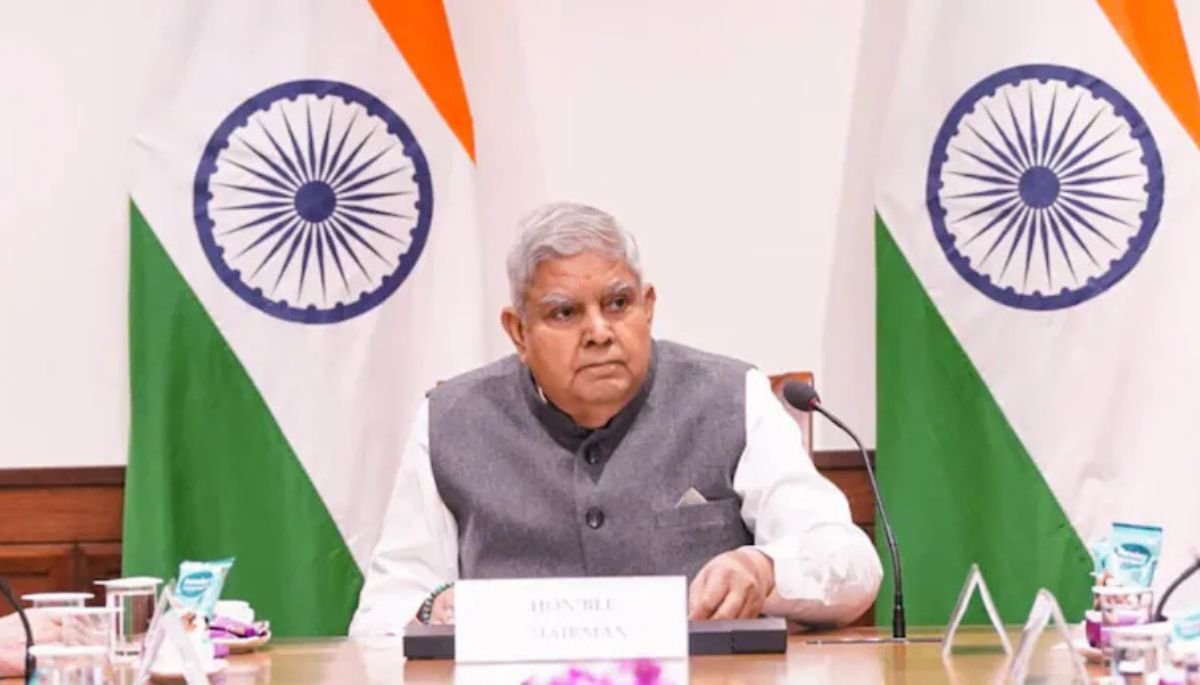
A Deep-Dive Political Analysis into Jagdeep Dhankhar’s Sudden Resignation
In the turbulent world of Indian politics, surprises are a constant, yet some events possess the sheer force to stun the entire nation into silence. The sudden resignation of Vice President Jagdeep Dhankhar on the very first day of the Parliament’s monsoon session is one such moment. The news, breaking late on a Monday evening, sent shockwaves through the corridors of power, leaving a trail of unanswered questions and fueling a firestorm of political speculation.
While the official reason cited was “health concerns,” the sequence of events leading up to the announcement suggests a far more complex and layered story. This deep-dive political analysis unpacks the timeline of the dramatic exit, explores the swirling theories behind the move, and examines the brewing race for his successor, a decision that will undoubtedly shape the country’s political landscape.
The departure of a Vice President, who also serves as the Chairman of the Rajya Sabha, is no small matter. It disrupts the legislative process, raises questions about the stability of the ruling establishment, and sets in motion a high-stakes search for a new constitutional head. Mr. Dhankhar, a seasoned lawyer and former Governor, was known for his firm, and often confrontational, handling of the Upper House. His exit is not just a procedural formality; it is a political event of immense significance. As we delve into the intricate details, from a controversial impeachment notice to a high-stakes Bihar electoral calculation, we aim to provide a comprehensive understanding of one of the most puzzling political developments in recent memory.
A Day of High Drama: The Timeline of a Shock Exit
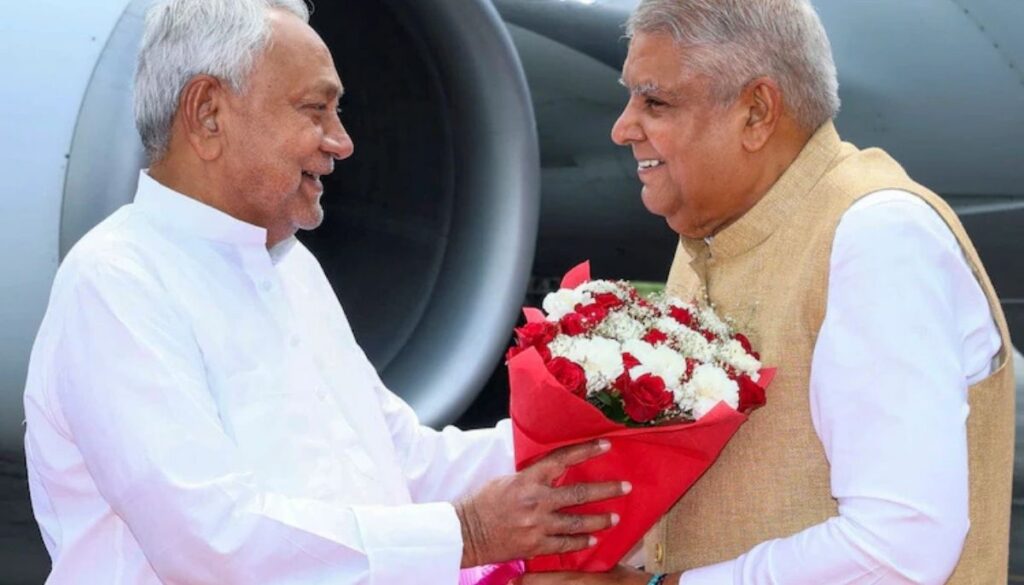
To comprehend the magnitude of Jagdeep Dhankhar’s resignation, one must meticulously reconstruct the events of that fateful Monday. The day began with the familiar hustle and bustle of a new Parliament session, but it concluded with a political vacuum at the top of the Rajya Sabha.
The morning session of Parliament was fraught with tension, marked by repeated adjournments as the government and opposition sparred on various issues. Amid this charged atmosphere, a significant development took place. Opposition parties, united in their cause, served a formal notice to Chairman Dhankhar to initiate impeachment proceedings against Justice Yashwant Varma of the Allahabad High Court. This move came after damning reports of large sums of cash being discovered at the judge’s residence, an issue the opposition was keen to leverage.
In a move that would later be seen as the catalyst for the entire episode, Jagdeep Dhankhar, in his capacity as Rajya Sabha Chairman, took the surprising step of accepting the notice for discussion. For the opposition, this was a procedural victory. For the ruling BJP, however, it was an unwelcome development. While the central government has been vocal about its mission to combat corruption, including in the judiciary, Dhankhar’s action was perceived as handing a political victory to the opposition on a platter, allowing them to lead the narrative.
The political undercurrents became more palpable later in the day. A meeting of the Rajya Sabha’s Business Advisory Committee (BAC), a crucial body that allocates time for legislative business, was scheduled to be held. In a telling sign of displeasure, key BJP figures, including Parliamentary Affairs Minister Kiren Rijiju and BJP National President J.P. Nadda, who is also the Leader of the House in Rajya Sabha, were conspicuously absent. Their absence sent a clear and powerful message through the political ecosystem: the BJP leadership was not pleased with the Chairman’s decision. While excuses were later made about being occupied with other important work, the timing was too coincidental for seasoned political observers to ignore.
Sources suggest that following this, Mr. Dhankhar received a series of phone calls from senior leaders within the BJP. The conversations were reportedly tense, with the leadership expressing profound discontent over his handling of the impeachment notice. The sentiment was that Dhankhar’s independent action had undermined the government’s own strategy and given undue mileage to their political rivals. The situation allegedly escalated to a point where Dhankhar was starkly warned of the possibility of facing a no-confidence motion himself—a severe and humiliating prospect for the occupant of the country’s second-highest constitutional office.
Caught in an untenable political crossfire, with his authority seemingly challenged by the very government that backed his election, Dhankhar was left with few options. By nightfall, to escape the escalating controversy and what he perceived as an impossible position, he chose the only honorable exit available. He drafted his resignation letter, citing health reasons, and sent it to President Droupadi Murmu, bringing an abrupt end to his tenure.
Deconstructing the “Health” Rationale: More Political Than Physical?
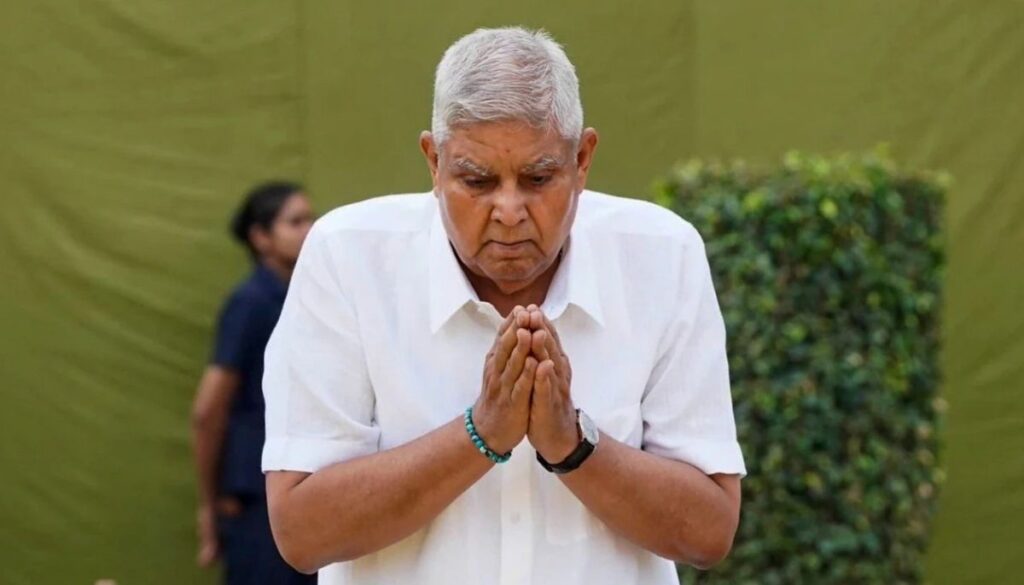
Officially, the narrative is simple and humane. In his letter to the President, Jagdeep Dhankhar stated that he was resigning to prioritize his health based on medical advice. At 74, concerns about well-being are legitimate, and it is true that he was treated for cardiac issues earlier in the year. However, the political establishment, including both allies and adversaries, found this explanation to be, at best, incomplete.
The skepticism is rooted in several inconsistencies. Congress MP Mallu Ravi pointed out the obvious: “His resignation letter states that his health is not suitable, but we feel this is more about his political ill-health than physical ill-health.” Ravi noted that Dhankhar had presided over the Rajya Sabha for two days without any visible sign of physical discomfort. This sentiment was echoed across the opposition benches. Congress General Secretary Jairam Ramesh called the resignation “as shocking as it is inexplicable,” highlighting that Dhankhar had a BAC meeting scheduled for the next day and was even expected to make significant announcements related to the judiciary.
Perhaps the most compelling piece of evidence contradicting the health narrative came from Dhankhar’s own words just twelve days prior. At an event at Jawaharlal Nehru University (JNU), he had confidently remarked, “I will retire at the right time, August 2027, subject to divine intervention.” This statement, made less than two weeks before his sudden departure, paints a picture of a man fully intending to complete his five-year term.
Furthermore, the Vice President’s Secretariat had issued a press release at 4 p.m. on the day of his resignation, detailing his scheduled travel to Jaipur later that week. This logistical planning is hardly indicative of a man preparing to step down due to a sudden health crisis. As Congress MP Sukhdeo Bhagat aptly put it, “In politics, not everything is straight.” The consensus in Lutyens’ Delhi is that “health reasons” served as a convenient and face-saving exit from a deeply political quagmire.
The Three-Theory Matrix: Unraveling the Real Reasons
With the official explanation widely discounted, political circles are buzzing with theories. While dozens of speculative narratives exist, three primary theories have emerged, each providing a plausible, albeit unconfirmed, explanation for the shock exit.
Theory 1: The Impeachment Gambit and the Price of Independence
This theory, which aligns most closely with the day’s timeline, posits that Dhankhar’s resignation was a direct consequence of his clash with the BJP leadership over the impeachment notice against Justice Varma. As Chairman of the Rajya Sabha, Dhankhar had a constitutional duty to consider notices submitted by members. By admitting the opposition’s notice, he was arguably acting within the bounds of procedural propriety.
However, in the hyper-partisan environment of modern Indian politics, procedure often takes a backseat to political messaging. The BJP government was reportedly preparing its own motion in the Lok Sabha regarding judicial accountability. Dhankhar’s haste in accepting the opposition’s motion was seen as pre-emptive and disruptive, denying the NDA the political “bragging rights” on the issue of corruption.
The alleged remark by J.P. Nadda in the House—”Nothing will go on record, only what I say will go on record”—while pointing towards the Chairman’s seat, has been highlighted by the Congress as a public “insult” to the Vice President. While Nadda later clarified his remark was directed at unruly opposition MPs, the perception of a rift was already cemented. The subsequent boycott of the BAC meeting by Nadda and Rijiju lent significant credence to this theory.
If the government felt its own Vice President was not aligned with its strategic interests and was instead giving oxygen to the opposition, it would create an unsustainable working relationship. The alleged warning of a no-confidence motion would have been the final straw, forcing Dhankhar to choose resignation over the humiliation of being challenged by his own side.
Theory 2: The Bihar Chessboard – A Sacrificial Pawn for a King?
The second major theory shifts the focus from parliamentary procedure to electoral strategy, specifically concerning the upcoming assembly elections in Bihar. This school of thought suggests that Dhankhar’s exit was a calculated political move to create a vacancy for Bihar’s Chief Minister, Nitish Kumar.
The BJP-JD(U) alliance in Bihar is crucial for the NDA, but it is also fraught with complexities. The BJP is keen to expand its footprint and secure a larger share of seats, and potentially the Chief Minister’s post, in the state where it has always been a junior partner. To achieve this, it needs a graceful and prestigious exit for Nitish Kumar, a long-serving and powerful ally. Appointing him as the Vice President of India would be the perfect solution. It would keep him in the NDA fold, reward him with a high constitutional office, and simultaneously clear the path for a new leadership structure in Bihar, potentially led by the BJP.
This theory gained significant traction when BJP MLA Haribhushan Thakur remarked, “It will be very good for Bihar if Nitish Kumar is made the Vice President.” While not an official party line, such statements from within the party are often seen as trial balloons. Furthermore, with Dhankhar gone, the Deputy Chairman of the Rajya Sabha, Harivansh Narayan Singh, who belongs to Nitish Kumar’s JD(U), is now chairing the proceedings. The optics of a prominent Bihar leader managing the Upper House in the run-up to the state elections is a political advantage for the NDA, lending a veneer of credibility to this intricate electoral theory.
Theory 3: The Unrelenting Critic – A Tussle with the Judiciary Too Far?
The third theory revolves around Jagdeep Dhankhar’s personality and his public posture, particularly his frequent and sharp criticisms of the Indian judiciary. Ever since assuming office, Dhankhar had carved out a niche as a vocal critic of what he termed “judicial overreach.” He repeatedly and publicly condemned the Supreme Court for its 2015 decision to strike down the National Judicial Appointments Commission (NJAC) Act, a law passed by Parliament to change the system of appointing judges.
While his views were largely in sync with the government’s own stance on judicial reforms, the sheer frequency and abrasiveness of his remarks may have become a source of discomfort. The government might have preferred a more nuanced and strategic engagement with the judiciary, whereas Dhankhar’s “my way or the highway” approach was creating constant friction. His statements were often perceived as the official government line, exposing the executive to criticism and straining the delicate balance of power between the branches of government. It is plausible that the government felt his outspokenness was becoming a liability, and a change was needed to bring a more measured and less confrontational figure to the Vice President’s office.
The Succession Scramble: Who Will Be India’s Next Vice President?
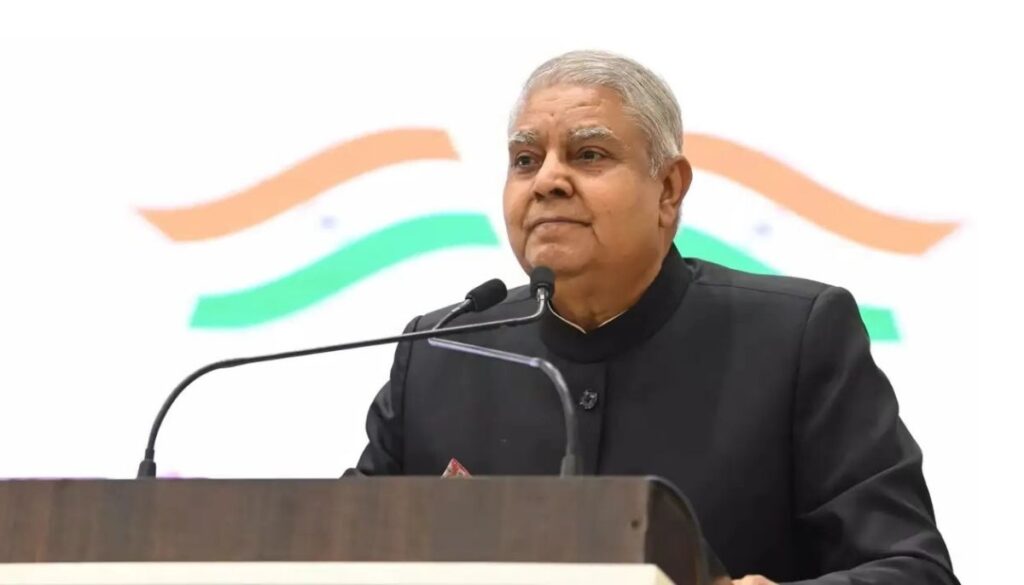
With President Droupadi Murmu formally accepting the resignation, the race to find Jagdeep Dhankhar’s successor has officially begun. The BJP-led NDA enjoys a comfortable majority in the electoral college for the Vice-Presidential election, which comprises members of both the Lok Sabha and the Rajya Sabha. Therefore, the NDA’s nominee is almost certain to win. The key question is not if the NDA will win, but who they will choose.
The choice of the next Vice President will be a telling indicator of the BJP’s political priorities. The party will likely seek a candidate with a clean public image, extensive administrative or legislative experience, and unwavering ideological alignment.
Currently, one name has emerged as a clear frontrunner: Harivansh Narayan Singh. The current Deputy Chairman of the Rajya Sabha, Harivansh, is a Member of Parliament from the Janata Dal (United), a key NDA ally. A former journalist with a reputation for being soft-spoken, studious, and non-controversial, he fits the bill perfectly. His elevation would serve multiple purposes: it would reward a steadfast ally, project an image of coalition harmony, and, as discussed, send a positive signal to the voters of Bihar. His experience as Deputy Chairman means he is already intimately familiar with the functioning of the House.
However, the field is wide open. The BJP has a precedent of picking senior leaders for the role. Dhankhar himself was the Governor of West Bengal before his elevation. His predecessor, M. Venkaiah Naidu, was a senior Union Minister. Following this pattern, the party could look towards another sitting Governor, a senior cabinet minister whose experience is needed to manage the often-contentious Upper House, or a widely respected organizational leader from within its own ranks. The final decision will be taken by the party’s top leadership, including Prime Minister Narendra Modi, and will be based on a complex calculation of political messaging, caste and regional equations, and the strategic needs of the government.
Jagdeep Dhankhar’s Sudden Resignation – Full Breakdown
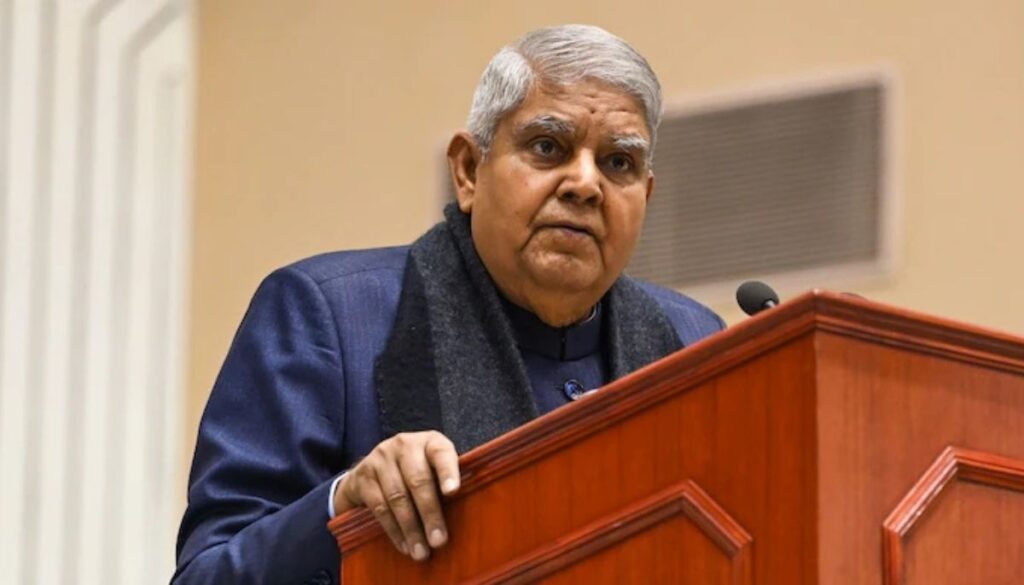
| Section | Details |
|---|---|
| Date of Resignation | July 22, 2025 (first day of Parliament Monsoon Session) |
| Reason Cited | Health concerns (as per resignation letter) |
| Actual Cause? | Speculated to be political pressure over accepting opposition’s impeachment notice against Justice Yashwant Varma |
| BJP Reaction | Speculated to be political pressure over accepting the opposition’s impeachment notice against Justice Yashwant Varma |
| Notable Events That Day | – Opposition served impeachment notice against a High Court judge- Dhankhar admitted it for discussion- BJP viewed this as politically damaging |
| Congress Reaction | Expressed concern over Dhankhar’s health- Demanded PM Modi convince him to reconsider- Suspected “political ill-health” behind the resignation |
| Shashi Tharoor’s Statement | Wished Dhankhar a speedy recovery; called the move “very sad” |
| 3 Key Theories Behind Exit | 1. Internal BJP pressure over judicial notice 2. Replacing Dhankhar with Nitish Kumar before the Bihar elections. Friction due to Dhankhar’s outspoken stance against the judiciary |
| Immediate Impact | 1. Internal BJP pressure over judicial notice 2. Replacing Dhankhar with Nitish Kumar before the Bihar elections. Friction due to Dhankhar’s outspoken stance against the judiciary |
| Probable Successor | Harivansh (JD(U)), current Deputy Chairman of Rajya Sabha |
| Previous Role | Governor of West Bengal (before becoming Vice President in 2022) |
| Term Details | Took office in August 2022; was due to retire in August 2027 |
| Reported dissatisfaction; key BJP leaders skipped the crucial BAC meeting | Highly likely; speculation underway |
| BJP Strategy Ahead | May choose a non-controversial senior leader or a political ally (e.g., Nitish Kumar) as Vice President |
| Opposition’s Claim | Will the New VP Be Elected in Session? |
Related Highlights
- President Murmu has officially accepted the resignation.
- JP Nadda’s remark in Rajya Sabha seen as a veiled jab.
- Speculations abound due to Dhankhar’s earlier tough stance on judicial overreach.
- Congress pushes a narrative of political vendetta and forced exit.
Conclusion: A Resignation that Reshapes the Narrative
Jagdeep Dhankhar’s two-year tenure as Vice President was eventful, but his exit has proven to be even more so. While the man himself has retreated from the public eye, citing health, the political storm he left behind is raging fiercely. Whether he was a casualty of his own independent streak, a pawn in a larger electoral game, or a victim of his confrontational style, his resignation has peeled back the curtain on the inner workings and power dynamics of the ruling NDA government.
The opposition, led by the Congress, has skillfully seized the moment, expressing token sympathy for his health while simultaneously fanning the flames of political intrigue, demanding that the Prime Minister convince him to reconsider. For the BJP, the immediate task is two-fold: first, to manage the political fallout and craft a coherent narrative to explain the departure of the “Kisan Putra” (son of a farmer) they had once celebrated.
Second, and more importantly, they must choose a successor who not only commands respect but also aligns seamlessly with their long-term political vision. The choice they make will be scrutinized intensely, for it will reveal more about their future strategy than any press release or public statement ever could. The Dhankhar enigma may remain unsolved, but its consequences are only just beginning to unfold.
The Real Story Behind Jagdeep Dhankhar’s Exit:
| Section | Description |
|---|---|
| Jagdeep Dhankhar’s Unforeseen Exit | Jagdeep Dhankhar may have chosen resignation as a strategic withdrawal rather than a forced retreat, preserving his dignity amid rising political heat. |
| Jagdeep Dhankhar’s Constitutional Consciousness | Jagdeep Dhankhar acted within his constitutional mandate by admitting the impeachment notice, reflecting his deep respect for parliamentary norms. |
| Jagdeep Dhankhar’s Assertion of Autonomy | Jagdeep Dhankhar demonstrated rare independence in office, signaling that even high constitutional figures can uphold procedural integrity over party preference. |
| Jagdeep Dhankhar’s Strained Relationship with Power Circles | Jagdeep Dhankhar perhaps became too assertive for a system that prefers loyalty over autonomy, leading to unease within the ruling establishment. |
| Jagdeep Dhankhar’s “Health” Justification Reconsidered | Jagdeep Dhankhar’s explanation of health reasons might have been a graceful diplomatic cover, allowing him to exit without triggering institutional crisis. |
| Jagdeep Dhankhar’s Political Realism | Jagdeep Dhankhar may have recognized the futility of continuing in a role where his decisions were increasingly at odds with party expectations. |
| Jagdeep Dhankhar’s Conflict with Party Hierarchy | Jagdeep Dhankhar’s decision to accept the impeachment notice exposed his widening rift with BJP leadership, revealing deeper fissures within the NDA. |
| Jagdeep Dhankhar’s Message to Future Leaders | Jagdeep Dhankhar’s resignation serves as a cautionary tale for future officeholders — independence carries political cost but preserves constitutional integrity. |
| Jagdeep Dhankhar’s Calculated Silence | Jagdeep Dhankhar’s decision to refrain from public rebuttals post-resignation suggests a deliberate attempt to protect institutional dignity over political debate. |
| Jagdeep Dhankhar’s Relationship with the Judiciary | Jagdeep Dhankhar’s consistent criticism of judicial overreach may have been a principled stance rather than political antagonism, aimed at restoring legislative primacy. |
| Jagdeep Dhankhar’s Balancing Act | Jagdeep Dhankhar struggled to balance his constitutional impartiality with political expectations — a tension that ultimately made his position untenable. |
| Jagdeep Dhankhar’s Role as a Reformist | Jagdeep Dhankhar sought to redefine the Vice President’s office as an active and assertive participant in constitutional discourse rather than a ceremonial figurehead. |
| Jagdeep Dhankhar’s Exit as Political Commentary | Jagdeep Dhankhar’s sudden departure can be read as silent protest — a subtle critique of excessive centralization and political conformity. |
| Jagdeep Dhankhar’s Timing of Resignation | Jagdeep Dhankhar’s resignation on the first day of the monsoon session was a powerful political signal — disrupting proceedings and demanding national attention. |
| Jagdeep Dhankhar’s Relationship with PM Modi | Jagdeep Dhankhar’s rapport with Prime Minister Modi reportedly cooled over time as his independent decisions increasingly clashed with the government’s narrative. |
| Jagdeep Dhankhar’s Legacy in the Rajya Sabha | Jagdeep Dhankhar will be remembered as a firm, no-nonsense Chairman who sought discipline, accountability, and decorum in an increasingly polarized Parliament. |
| Jagdeep Dhankhar’s Bihar Connection Theory | Jagdeep Dhankhar’s resignation indirectly opened the door for Bihar’s political reshuffle, possibly paving the way for Nitish Kumar’s national elevation. |
| Jagdeep Dhankhar’s Political Significance | Jagdeep Dhankhar’s exit highlights the complex dynamics between constitutional propriety and political pragmatism in India’s evolving power structure. |
| Jagdeep Dhankhar’s Possible Comeback | Jagdeep Dhankhar could re-emerge in a different role — perhaps as a senior statesman or advisor — maintaining his relevance in national politics. |
| Jagdeep Dhankhar’s Enduring Symbolism | Jagdeep Dhankhar now stands as a symbol of constitutional independence, his resignation echoing as both a political storm and a moral statement. |
Note: All information and images used in this content are sourced from Google. They are used here for informational and illustrative purposes only.
Frequently Asked Questions (FAQ) on Jagdeep Dhankhar’s Resignation
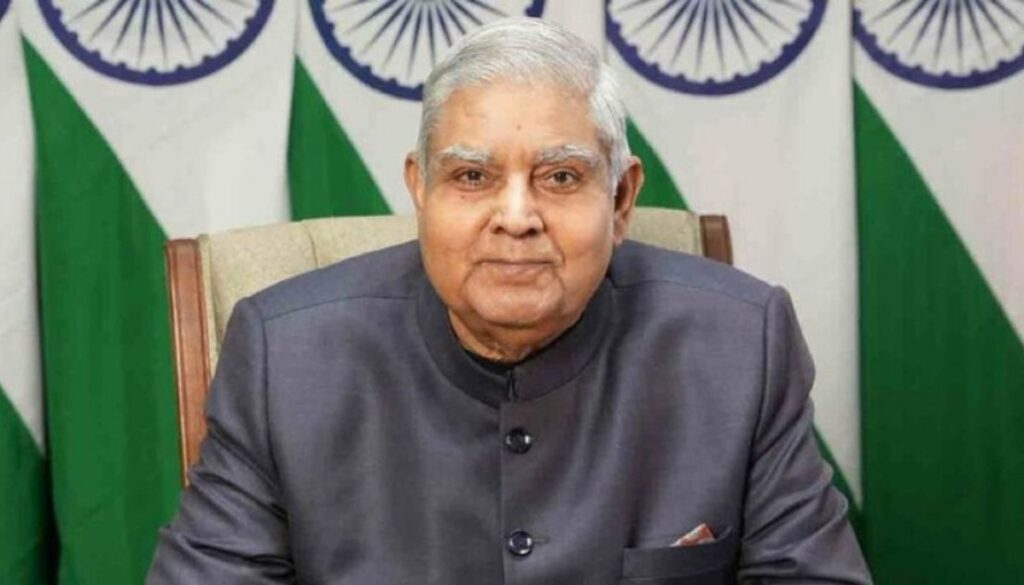
1. Why did Jagdeep Dhankhar resign as Vice President of India?
Jagdeep Dhankhar cited “health concerns and medical advice” as the reason for his resignation. However, political analysts and opposition leaders believe there could be deeper political reasons, especially given the timing and the events of the day.
2. What triggered speculation around Dhankhar’s resignation?
Dhankhar accepted an impeachment notice from opposition MPs against a High Court judge, which allegedly upset the BJP leadership. His decision reportedly led to a backlash within the party and speculation of a no-confidence motion, prompting him to resign suddenly.
3. Was there any warning or indication before Dhankhar resigned?
No. He presided over proceedings during the day and even chaired the Business Advisory Committee meeting. The resignation was submitted later that evening, catching both the government and opposition off guard.
4. Did BJP leaders react to his resignation?
Official reactions were delayed. Key BJP leaders like JP Nadda and Kiren Rijiju skipped a crucial meeting called by Dhankhar on the same day, which was seen as a sign of internal discontent. Prime Minister Modi responded only after 15 hours.
5. What is the Congress party’s stance on the resignation?
The Congress expressed concern over Dhankhar’s health but questioned the official reason. Leaders like Shashi Tharoor and Jairam Ramesh suggested that the resignation may be more political than medical in nature.
6. Was there tension between Dhankhar and the judiciary?
Yes. Since taking office, Dhankhar had frequently criticized “judicial overreach” and publicly opposed the scrapping of the NJAC Act. His remarks often stirred controversy and may have created friction with both the judiciary and parts of the government.
7. Who will take over as Vice President now?
As per protocol, Deputy Chairman Harivansh Narayan Singh is presiding over Rajya Sabha proceedings temporarily. He is also a top contender for the full-time role, with sources indicating that NDA may back his appointment.
8. Could Nitish Kumar be the next Vice President?
That is one of the theories gaining traction. Political insiders speculate that the BJP might offer the Vice President’s post to Bihar CM Nitish Kumar as part of a pre-election strategy to consolidate NDA unity ahead of the Bihar elections.
9. How long was Dhankhar supposed to serve?
Jagdeep Dhankhar assumed office in August 2022 and was due to complete his term in August 2027. He resigned mid-term, after serving for just under three years.
10. Why is the resignation considered unusual?
Apart from the suddenness, Dhankhar had only recently said he would serve till 2027 unless there was “divine intervention.” His active schedule and no visible signs of illness added to the speculation that the resignation was politically motivated.
11. What are the top three theories behind Dhankhar’s exit?
- Pressure from BJP over accepting the impeachment notice against Justice Varma.
- Replacing Dhankhar with Nitish Kumar as a strategic political move.
- Growing discomfort within the government over Dhankhar’s vocal criticism of the judiciary.
12. Will a new Vice President be elected during this Parliament session?
It is highly likely. With the NDA holding a majority, the government may initiate the election process during the current monsoon session itself.
13. What impact does Dhankhar’s resignation have on Parliament?
The resignation has disrupted Rajya Sabha proceedings and intensified political debate. It has also put the BJP in a delicate position, needing to manage optics while ensuring stability in the Upper House.
14. Did Dhankhar show signs of ill health before resigning?
According to opposition leaders and journalists, Dhankhar appeared fit and active while presiding over Parliament just hours before resigning. His own office had announced upcoming engagements, which contradicts the sudden health claim.
15. What happens if Dhankhar refuses to reconsider?
While Congress has urged PM Modi to persuade him to reconsider, Dhankhar’s resignation has already been accepted by President Droupadi Murmu, making a reversal unlikely.



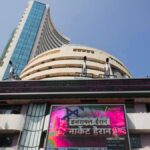


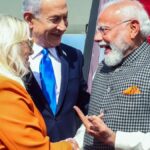
Leave a Reply